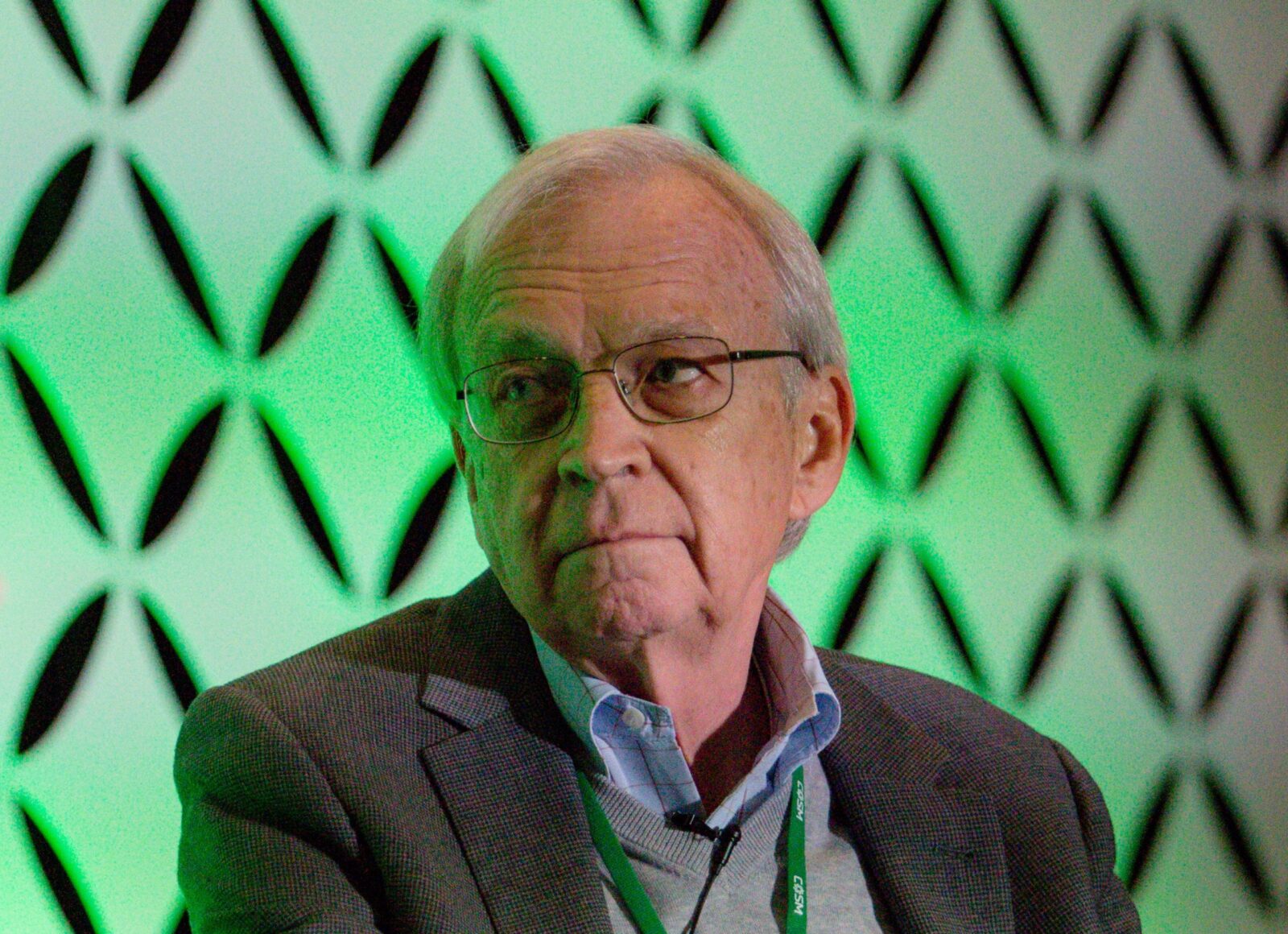Tom Alberg: A Personal Tribute to a Pivotal Figure in Seattle and at Discovery Institute
A crucial participant in the founding of Discovery Institute — and a leader in the burgeoning tech economy of Seattle for four decades — Tom Alberg, 82, died at his home August 5.
Tom and I were thrown together as Freshman roommates at Harvard in 1958, in an instance where a mere computer made an inspired selection. We hit it off, partly of course because of a shared affinity for politics (we were eager Young Republicans), but also because our personalities complemented one another: I the apparently hard-driving one, he — even then — the reserved, thoughtful counsellor who says little, but provides a timely and decisive recommendation that somehow creates consensus.
Tom invited me to Seattle in the summer of 1959 to work on a farm his father owned in the Snoqualmie Valley. We were 19 and 18 years old. That introduction to the Seattle area persuaded me to move here a few years later. Tom, meanwhile, went to Columbia Law School, had a brief high-end law firm experience, then pulled himself back to Seattle. Thereafter, we and other friends took part in a number of political and civic campaigns, some of which were successful. Tom prospered at Perkins, among other things, as an outside counsel for the Boeing Company and Alaska Airlines.
So now, in 2022, there is an accounting. Tom will be remembered among business and technology movers and shakers for founding the Madrona Venture Group that has midwifed prominent tech companies, and especially for his early and long-standing engagement as an influential board member of Amazon. Before that he was managing partner at the Perkins Coie law firm. Pulled away by Craig McCaw, he became president for public companies at LIN Broadcasting and Executive Vice President of McCaw Cellular. He was one of the negotiators who created a new AT&T. Entertaining behind-the-scenes stories of such accomplishments are recounted in Tom’s book Flywheels: How Cities Are Creating Their Own Futures (2021). It was published only shortly before the stroke that layed Tom low. (I’m so glad he got it done before disaster struck.)
From the mid-80’s Tom and I (and future Seattle Mayor Paul Schell) discussed the possibility of founding a public policy think tank in Seattle. It finally eventuated in 1990 as a branch of Hudson Institute, then headquartered in Indianapolis. But soon thereafter Tom proposed that we make the institute independent, which was prudent advice. And, from 1991 until 2007, Tom was Chairman of the Board of Discovery Institute and helped see us through the early start-up problems that were not dissimilar to the startups in business that Tom was becoming increasingly good at handling.
When he was at Perkins, Tom arranged for us to enjoy free space in the firm’s beautiful 56th floor facilities, a huge financial benefaction for our delicate entity. He also assisted our mutual friend and Harvardian, George Gilder, the lead Senior Fellow of Discovery Institute, as George made nationally prominent contributions to the study of new technology. Half the time I didn’t know what my pal George was talking about. All the time, Tom did.
We established a Center on Wealth and Poverty at the institute, headed by George (who had authored the best-selling Wealth and Poverty in the early ‘80’s), and also a technology project, likewise headed by George. Tom was involved in shaping these programs and eventually became a major financial donor to them, as well as an expert spokesman at Discovery events on the formation of new tech businesses. Even after his Board service Tom returned to Discovery to emcee what became an annual conference, “COSM,” and on many other occasions he had George come to speak to budding entrepreneurs at Madrona.
Tom also was instrumental in our “Cascadia project” on Northwest regionalism, which increasingly concentrated on transportation issues and then (a further refinement) the emergence of Autonomous Connected Electric Vehicles (ACES).
Much will be written about Tom Alberg’s contributions to such other civic institutions as the Pacific Science Center and the University of Washington. But for me, who dug fenceposts, chased cows, bailed hay and cut cordwood at Oxbow Farm and Novelty Hill with Tom when we were still in our teens, it was most satisfying to see him and Judi establish Oxbow Farm as a public operation — fifty years later! — on that very site where Tom and I sweated and grew strong — and to make it a conservation and educational enterprise for youth. Tom (wisely) was happy that Judi took the lead in developing and sustaining their joint grand plan. It will go on.
It was satisfying also, then, to watch Tom and Mike Januik partner to grow grapes around an Alberg farm near Royal City in Eastern Washington and to establish in Woodinville, not far from Oxbow Farm, the chic yet somehow cozy Novelty Hill winery. Our family finds their vintages in stores and restaurants nationally. The winery too will go on.
At every stage Tom advanced progress for business, his community, and for all us. He typically declined credit. He mentored many young people with serious personal engagement. He and his first wife, Mary, a beloved professor of physics, produced three children who are a bountiful credit to that union. Judi and he established an extraordinary marriage and two great kids — now adults. For me and my wife, Sarah, and our family, they are extensions of what we do and who we are.
Sometimes friendships that entail working together, aspiring together, on many things year after year never tire or seem to grow old. They only deepen and expand. That’s how it has been with Tom.
As for Discovery Institute — our President, Steve Buri, our Board, fellows and staff —we are grateful. We couldn’t have done what we do without Tom Alberg, and we all will miss him. For me personally, that is an understatement.
